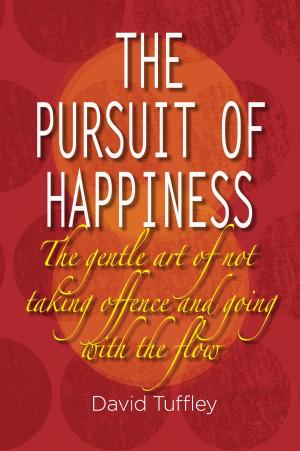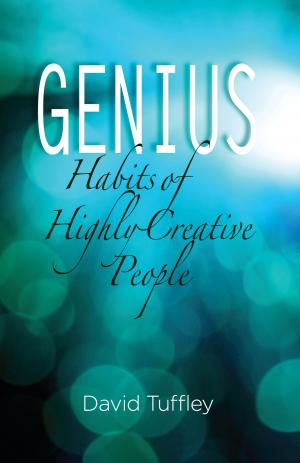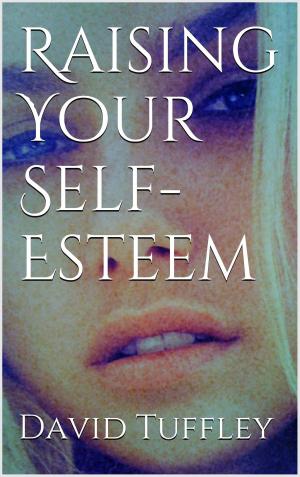Being Happy: Part 2
Nonfiction, Health & Well Being, Psychology, Applied Psychology, Self Help, Self Improvement, Self-Esteem| Author: | David Tuffley | ISBN: | 9781301297764 |
| Publisher: | Altiora Publications | Publication: | October 10, 2013 |
| Imprint: | Smashwords Edition | Language: | English |
| Author: | David Tuffley |
| ISBN: | 9781301297764 |
| Publisher: | Altiora Publications |
| Publication: | October 10, 2013 |
| Imprint: | Smashwords Edition |
| Language: | English |
In Being Happy Part 1 we explored the dynamics of happiness through self-actualisation, the achievement of your fullest potential. In Part 2, we discuss the work of Martin Seligman, a foremost proponent of the positive psychology movement and a leading source of advice on being happy.
As the name suggests, positive psychology focuses on what is good, what is working in a person’s life. Its aim is to find ways build on people’s strengths, help them to find happiness and to achieve their full potential. This is in contrast to traditional psychology that focussed on what is wrong with a person.
After a broad ranging review of the various prescriptions for happiness, from such diverse sources as the Buddha to Tony Robbins, Seligman identifies three distinct ways to find happiness; the Pleasant Life, the Engaged Life and the Meaningful Life.
In the fullest sense, the happiest of lives are those where all three are cultivated and practiced. Seligman found, somewhat to his surprise, that Pleasure alone contributes little to a lasting sense of happiness and fulfilment. He compares it to "the whipped cream and the cherry" that tops off a life spent in the simultaneous pursuit of meaning and engagement.
Then we take a detailed look at other happiness inducing factors that Seligman has identified in the course of a long and distinguished career in positive psychology.
CONTENTS
INTRODUCTION
THREE KINDS OF HAPPY LIFE
QUALITY RELATIONSHIPS
SELFLESS CARING
HEALTHY MIND IN A HEALTHY BODY
SPIRITUAL MEANING
OPTIMISM – LEARNED OR INHERENT
MINDFULNESS
FLOW
BUILDING ON YOUR STRENGTHS & VIRTUES
STRATEGIC NON-ACTION – WU WEI
NOT TAKING OFFENCE
ABOUT THE AUTHOR
In Being Happy Part 1 we explored the dynamics of happiness through self-actualisation, the achievement of your fullest potential. In Part 2, we discuss the work of Martin Seligman, a foremost proponent of the positive psychology movement and a leading source of advice on being happy.
As the name suggests, positive psychology focuses on what is good, what is working in a person’s life. Its aim is to find ways build on people’s strengths, help them to find happiness and to achieve their full potential. This is in contrast to traditional psychology that focussed on what is wrong with a person.
After a broad ranging review of the various prescriptions for happiness, from such diverse sources as the Buddha to Tony Robbins, Seligman identifies three distinct ways to find happiness; the Pleasant Life, the Engaged Life and the Meaningful Life.
In the fullest sense, the happiest of lives are those where all three are cultivated and practiced. Seligman found, somewhat to his surprise, that Pleasure alone contributes little to a lasting sense of happiness and fulfilment. He compares it to "the whipped cream and the cherry" that tops off a life spent in the simultaneous pursuit of meaning and engagement.
Then we take a detailed look at other happiness inducing factors that Seligman has identified in the course of a long and distinguished career in positive psychology.
CONTENTS
INTRODUCTION
THREE KINDS OF HAPPY LIFE
QUALITY RELATIONSHIPS
SELFLESS CARING
HEALTHY MIND IN A HEALTHY BODY
SPIRITUAL MEANING
OPTIMISM – LEARNED OR INHERENT
MINDFULNESS
FLOW
BUILDING ON YOUR STRENGTHS & VIRTUES
STRATEGIC NON-ACTION – WU WEI
NOT TAKING OFFENCE
ABOUT THE AUTHOR















